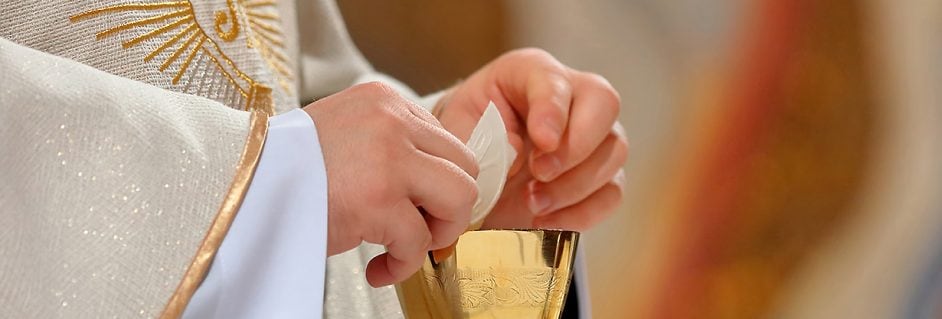Sacraments

Introduction to the Sacraments in the Catholic Church
Sacramentality is at the heart of the Catholic Church. It is born of the mystery of Incarnation – “God so loved the world that he gave his Son”. For this to happen, Jesus who was with the Father took flesh and was born among us: as St John describes it, “he pitched his tent among us”.
Throughout his life and mission Jesus revealed the face of God – ‘to have seen me is to see the Father”, said Jesus. In fact, “if only I can touch his cloak I will be healed”, was the prayer of the infirm woman in Mark – and in fact she was healed as “power came out of Jesus”.
At the final supper, Phillip asked Jesus to “show us the Father”. And Jesus’ response is a great revelation: “to have seen me is to see the Father”. It is in this context that we are able to call Christ the sacrament of the Father. It is the human person who is Jesus that is the place of revelation and healing for our world. It is in and through the humanity of Jesus that God is fully present to us and known by us. Jesus himself asked his hearers, “Who do you say I am?” The faith response of each person will then inform the power of Jesus.
With the event of Pentecost through the gift of the Holy Spirit Christ is then given to the world in the community of the Church. The Spirit makes present the risen Christ in the community of believers. As the Body of Christ, the Church is called to be the presence of God in the world, in and through its human life. In and through our humanity, we come to know the love, forgiveness and grace of God, and to mediate God to each other and the wider world.
The Holy Spirit thus forms the Church, in its humanness, to be sacrament of Christ, a sign of God’s presence in the world. But this gift of the Spirit relies upon us to be faithful to this giving. We well know that the Church is ambiguous in the way it lives out its calling: we can be both saint and sinner. The humanity of the Church, speaks of both our capacity to mediate God to others and of our inadequacies and failings.
Throughout history, the Church’s rituals by which it celebrated this gift of God in the lives of its people took many different forms. Local culture and practices played important parts in establishing the way in which they celebrated the various parts of Christian worship. Let us now look at the ways in which the Sacraments developed in the changing life of the Church. We shall particularly focus upon the way in which the Sacraments are celebrated in our contemporary Church.

